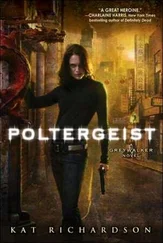I started to go, tucking Chaos down into my bag so she wouldn’t attract too much attention. One of the coffeehouse workers walked by, picking up unbused dishes. There were two employees in today—a boy and a girl, both dark-haired, young, and funky-cute, probably high school kids working the weekend shift. The girl paused to take my cup and glanced at the screen I’d left up with the physical information about Lake Crescent.
“I really like your scarf,” she said.
It was cold enough outside, even though the sun was out in the watery blue sky, that I’d wrapped an improbable red velvet muffler around my neck under my wool overcoat. It was more froufrou than I usually went for, but it was wide and soft and warm, and I could always put it over my head if the weather turned wetter or colder while I was out in the woods.
“Oh, thanks. It was a Christmas present.”
“Figured.”
I raised an eyebrow at her. “Oh?”
“Yeah, y’know—the kind of thing you never buy for yourself’cuz . . . um . . .” She cut herself off, blushing. Then she changed the subject. “So, did you get what you wanted?”
I pulled a rueful face. “Not really. I got information, but it’s not heartening.”
“Oh? What were you looking for?”
“Hope that something lost might be found.”
“Where’d you lose it?”
I laughed a little at her earnest inquiry. “It’s not something of mine. It’s a client’s car. It may have been dumped into Lake Crescent and . . . well, the lake’s just too deep to hope anyone can haul the car back up. Nothing’s coming back from that lake.”
She shrugged and picked up the bus tub she’d been putting dishes into. “Maybe, maybe not. Stuff comes back sometimes. The Lady of the Lake did.”
“Who?”
She turned her head and called to the boy behind the counter, who was tinkering with the espresso machine. “Jeff, what was her name, the Lady of the Lake?” She glanced back at me and said, “That’s my brother, Jefferson. He’s, like, the biggest ghost-story guy you’ll ever meet. He knows everything about the Lady of the Lake.” She rolled her eyes a little, but she was smiling nonetheless.
“Hallie,” the boy called back. “Hallie Latham Illingworth.”
I looked at the young man and started walking toward him. His sister tagged along with the tub of dirty dishes. It was almost too heavy for her to carry, even half full, but she swaggered under its weight and I didn’t dare offer to help her.
“Hi,” I said, and offered my hand. “I’m Harper Blaine. Who was Hallie Illingworth?” I asked. Business was a little slow at the moment, so I didn’t think anyone would mind if I chatted up the kids.
The young man glanced up from his work on the machine, wiped his hands, and shook mine. “I’m Jefferson Winter. That’s my sister, Erika.” He was a good-looking kid, with wavy black hair and an unseasonable tan. He barely looked old enough to have a food handler’s license and I guessed he was about seventeen. He leaned against the counter and gave me a grin. “Hallie’s a legend.” I could tell he liked the attention and would probably drag the story out as long as he could, but that was all right with me—for now.
“But it’s true,” he added, “and it’s a real cool story. See, Hallie worked up at the lodge—it’s the Lake Crescent Lodge on the park property now, but they called it the Singer Tavern back then. She worked up there in 1937. She was like a cocktail waitress or something. Anyway, she was married to this jerk named Monty Illingworth and they had a totally messed-up relationship.”
“Messed up how?” I asked.
“He used to hit her,” Erika cut in, carrying the bus tub around the end of the counter toward the kitchen door. “I mean, with a name like Monty, he had to be a real dork. Totally abusive, right?”
Jefferson nodded. “That’s what the newspapers said. They lived in an apartment down here in town and they used to keep the neighbors up, fighting and throwing stuff. Hallie used to show up at work with, like, black eyes and bruises and that.” He paused to look over his shoulder as his sister took the dirty dishes into the kitchen. “Hey, Erika, could you bring me the other foaming cup when you come out?”
“Sure,” she said, tossing her long dark hair back from her face as she rounded the doorway. “I live to be your minion, y’know.”
“You are my minion.”
Erika scoffed. “Whatevs.”
“Yeah, whatever.” Jefferson shrugged and looked back at me. “Anyway, so, like, it’s Christmastime back in 1937, right?”
I nodded. “OK.”
“And Hallie goes home from the tavern after work. It’s really late, like eleven or twelve o’clock. And she leaves the lodge . . . and she never came back.”
The pronouncement didn’t have quite the impact on me that he’d obviously hoped for: I just made a doubtful face at him. “So . . . ?”
Jefferson frowned. “So, like, she doesn’t come back, and Monty says she took off with some other guy and everyone’s all, ‘She musta left that creep and moved away,’ and that’s what they thought until . . .”
I rolled my eyes, but played along. “Until . . . what?”
“One morning in 1940, these two fishermen are rowing up on the lake near the burned-out remains of the Log Cabin Hotel—that’s the far northwest part—and they see this thing floating on the water, so they go get it and it’s . . . a body!”
“Hallie.”
“Yeah. But here’s the good part: She’s all turned into soap.” He was grinning and his eyes sparkled, kind of undermining the spooky effect he’d probably hoped for.
“Soap?” I asked.
Erika came back from the kitchen with the milk-foaming cup and put it down on the counter beside the espresso machine. “Yeah! Isn’t that gross? They must have been all, like, ‘What’s this?’ and then they get her up in the boat and all—”
Jefferson interrupted her. “And they thought it was a hoax, at first, like maybe someone had carved a person out of soap and thrown it in the lake for a joke, except her face and fingers are all eaten off, so they don’t know who it is. So they take it down here. And there’s this medical student who figures out it’s a real dead person and her body fat all turned to soap because the water in the lake is real cold and real pure, and down at the bottom it’s more alkaline than at the top, so she saponified and got lighter and then . . . she floated up.”
“OK, that’s kind of creepy,” I agreed.
“It’s kind of cool,” Jefferson said. “This medical student, he’s like that forensic lady on TV and he figures out that someone strangled his soap lady and bashed her head in before they wrapped her up in some old canvas and ropes and dumped the body in the lake. And then he figures out who she is because she has this dental thing in her mouth—he finds the dentist who made it and that guy says, ‘Oh yeah, I made that for Hallie Latham.’ And everyone says, ‘Who’d kill Hallie? Everyone loved her!’ ”
“Except Monty!” Erika added.
“So Monty strangled his wife and threw her into Lake Crescent,” I said, “and three years later—”
“Two and a half,” Jefferson corrected. “She died at Christmas in 1937, but the fishermen found her in July of 1940.”
I nodded. “All right. Two and a half years later, her saponified body bobbed to the surface of the lake. It’s a really weird story, but I don’t think my client’s car is going to turn into soap and float to the shore of Lake Crescent anytime soon. And he’s been missing for about five years, now.”
“Your client is missing?” Erika asked.
“How do you know the car’s in Lake Crescent?” Jefferson asked at the same time.
Читать дальше











